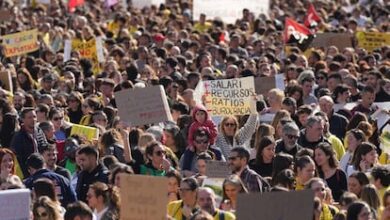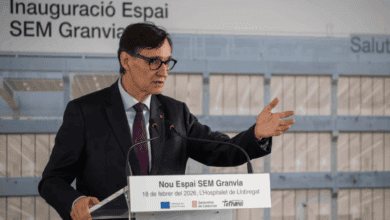
The Madrid authorities have allocated €1.5 million from the city budget for the filming of Woody Allen’s next movie. This move is not just financial support but also a bold political statement that has immediately sparked intense debate in cultural and public circles. Regional president Isabel Díaz Ayuso openly opposes so-called ‘cancel culture,’ backing a director whom Hollywood has effectively ostracized.
Ayuso is using this project to promote Madrid’s image as a city that values creative freedom and refuses to bow to public pressure. Woody Allen, despite the controversies surrounding him, is being positioned as a symbol of artistic independence from moral tribunals. There’s also a pragmatic side to the decision: the contract with the director includes a requirement for Madrid to be mentioned in the film’s title. In this way, supporting the arts becomes a powerful tool for tourism marketing.
Madrid as a stage for world cinema
Woody Allen has previously filmed in Spain—his movies ‘Vicky Cristina Barcelona’ and ‘Rifkin’s Festival’ may not have been masterpieces, but they drew attention to Spanish locations. Now, the Spanish capital hopes to gain not just cultural, but also economic benefits: the filming will shine a spotlight on the city, and the film’s premiere could become a major event for the local industry. However, critics note that such projects often resemble advertising campaigns more than genuine acts of patronage.
Despite the director’s controversial reputation, his recent works—’Wonder Wheel’, ‘A Rainy Day in New York’, ‘Coup de Chance’—prove that he can still craft atmospheric, thought-provoking stories. For Madrid, this is an opportunity not only to make its mark on the global stage, but also to show openness to diverse perspectives and creative experiments.
Politics, art, and public response
Ayuso’s decision to back Woody Allen has sparked lively debate. Some see it as a bold step in defense of freedom of expression, while others view it as an attempt to use art for political purposes. The high-profile media campaign around the project is already paying off: Madrid is being discussed not just as the capital of Spain, but as a platform for ambitious cultural initiatives.
In the coming months, the film crew will begin work at some of the city’s most iconic locations: Retiro Park, Cascorro Square, and other recognizable spots are expected to appear on screen. The director himself may once again play the clarinet in one of Madrid’s jazz clubs, adding his signature atmosphere of nostalgia and irony to the film. However, as observers note, the main focus will not be so much on the movie’s plot as on the very fact that the director is being supported by the regional authorities.
The symbolic meaning and consequences for Madrid
This project has already become more than just another film. For Ayuso, it’s an opportunity to boost her political image; for Madrid, a chance to present itself as a city where art is free from ideological constraints. Woody Allen, for his part, gets a new stage for his creativity and another chance to claim the spotlight of the European public.
The film’s premiere is expected to generate as much buzz as the funding decision itself. In the end, the story of supporting Woody Allen turns into a complex interplay where politics, culture, and public opinion become part of a single script.












